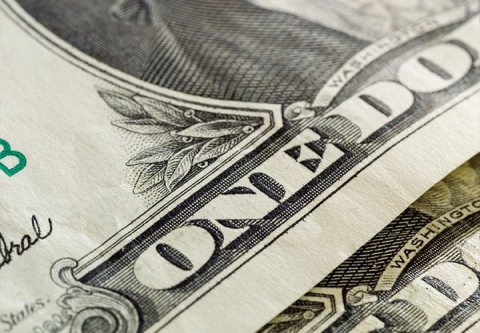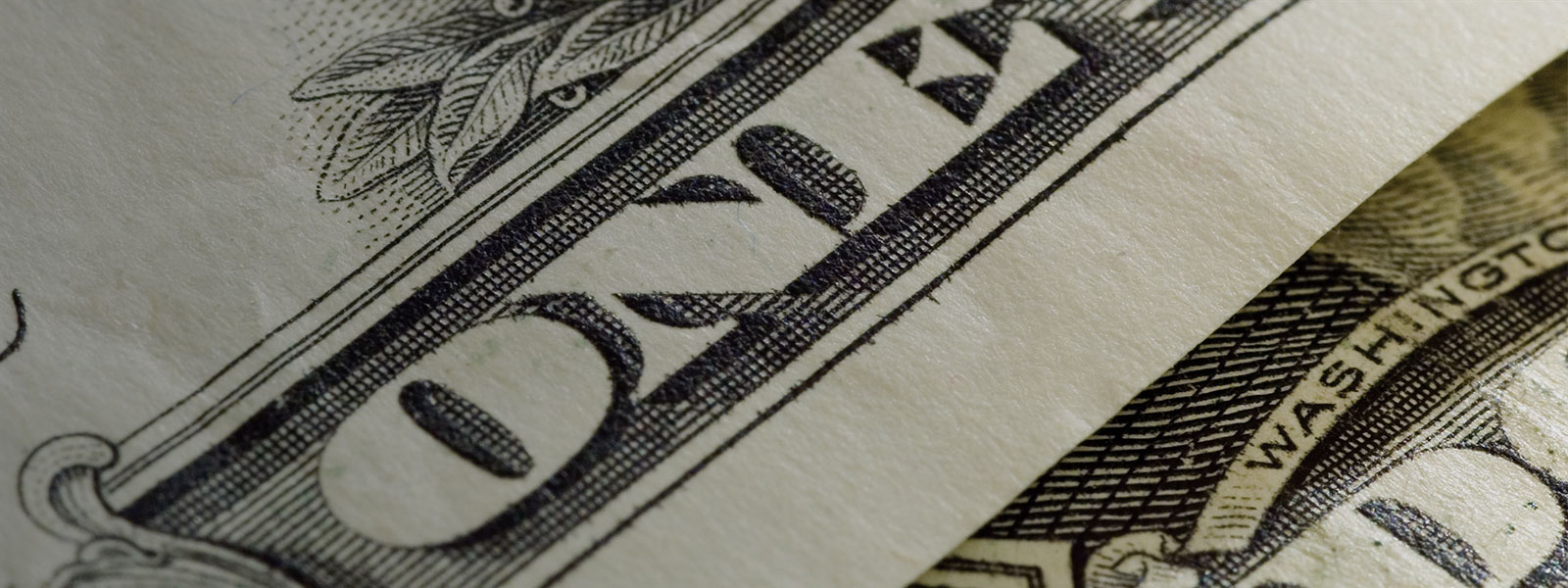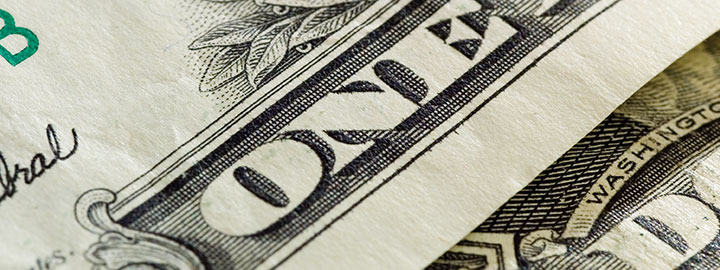

Supervision
The CFPB has historically focused on how to address so-called "debt traps" associated with payday lending.3
"It's not at all unusual for a new administration to change positions on various policies. This place will be different . . . than it was under Mr. (Richard) Cordray."1
CFPB Acting Director Mick Mulvaney
After five years of research and public comments, the CFPB released its final rule regulating payday lending in October 2017 (Payday Rule), shortly before former Director Cordray resigned.4 In addition to enhanced disclosure and registration requirements, the Payday Rule also imposes limits on how frequently a lender can offer, collect on and extend high-interest loans, as well as requires lenders to determine a borrower's ability to repay a loan (in full and with interest) within 30 days ("full payment test"). On the Payday Rule's effective date, CFPB Acting Director Mick Mulvaney announced that he would reopen the rulemaking process and reconsider the Payday Rule, while also granting waivers to companies regarding early registration deadlines.5 Currently, the Payday Rule's substantive provisions, including compliance program and documentation requirements, will come into force on August 19, 2019.
Given Mulvaney's known opposition to the Payday Rule,6 the rule will likely change and become less onerous for the payday lending industry. Nevertheless, the extent to which the Payday Rule can be relaxed remains unclear, given the time-consuming notice and lengthy comment procedures required under the Administrative Procedure Act.7 In addition, the Bureau would have to offer a sufficient rationale to support reconsideration of a final rule that resulted from extensive research and public debate to avoid judicial review by courts under an arbitrary, capricious or abuse of discretion standard8 in litigation that is likely to ensue.9 With these administrative hurdles in mind, the Bureau may opt to file a new notice of rulemaking and reopen the comment period to further delay implementation, or only seek to relax certain requirements instead of initiating a substantial overhaul. The status of the Payday Rule has also been put into question by bipartisan joint resolutions in the House and Senate seeking its repeal under the Congressional Review Act (CRA).10 Review under the CRA would provide a faster avenue to overturn the Payday Rule, as demonstrated with the CFPB's now defunct arbitration rule.
The Trump Administration has also taken notable steps to ease the burden placed on the payday lending industry. These include terminating the Obama-era "Operation Choke Point," which was designed to discourage banks from doing business with payday lenders,11 as well as removing payday-bank partnership restrictions for at least one payday lender.12 This signals a significant departure from regulatory constraints put in place a decade ago prohibiting affiliations between national banks and payday lenders that sought to circumvent state interest rate caps.13
Change at the OCC
On March 23, 2018, the House Financial Services Committee also voted in favor of the EQUAL Act. If passed, the bill would allow banks to issue high-interest payday loans by rescinding a 2013 FDIC guidance on bank payday loans, exempting banks and credit unions from the Payday Rule, and providing for express federal preemption of state law for bank and credit union small-dollar loans.14 States are likely to challenge such a proposal, particularly those with strict interest caps on small-dollar loans, such as South Dakota, Connecticut, Montana and Oregon.15
"Payday lenders spent US$63,000 helping Mick Mulvaney get elected to Congress and now their investment is paying off many times over."2
Senator Elizabeth Warren (D-MA)"Stay the hell away from national banks."
Comptroller John D. Hawke, Jr. (2003)
Enforcement
In 2017, the Bureau's enforcement efforts focused on policing in-person and online payday lenders that charged usurious or illegal interest rates and fees, and employed deceptive lending and debt collection practices, such as claiming to have tribal or out-of-state bank affiliations to conduct business in states where they were not licensed, and making unauthorized transfers from consumers' bank accounts.16
Notably, the new Bureau's leadership decided to drop a lawsuit initiated mid-2017 against a group of four payday lenders associated with a Native American tribe accused of deceiving consumers and failing to disclose the true cost of the loans, which carried interest rates as high as 950 percent a year.17 The Bureau also dropped at least one probe into a payday lender resulting from a 2014 civil investigative demand.18 Concurrently, a federal judge rejected the Bureau's previous request for money penalties against a nonbank lender that sought to circumvent state usury caps by claiming an affiliation with a tribe. While still ruling in the Bureau's favor, the Court instead allocated only a fraction of the relief sought.19
Although no new action has been introduced in 2018, several of the Bureau's enforcement actions are still pending.20 Considering the Bureau's recent policy changes, it is unclear how the new CFPB leadership will proceed in light of its ongoing review of pending enforcement actions.21 We expect the Bureau's retreat from the payday lending space to proceed further, especially in light of its new reliance on "quantitative analysis"22 to prioritize enforcement and Acting Director Mulvaney's recent statements that payday lending only represented 2 percent of overall consumer complaints in 2016.23 As in other areas, states may seek to fill any perceived voids left by the CFPB.
0.4%
Overall consumer complaints directed at payday lenders (since CFPB’s creation)
Fintech outlook and small-dollar loans
In addition to established market participants targeting borrowers with high credit scores, new internet-based startups are offering small-dollar loans to non-prime borrowers, directly targeting the payday lenders' customer base. Fintechs aim to compete with traditional payday lenders by marketing a more customer-centric approach, as well as flexible terms and lower fees. These new market entrants generally rely on the use of AI-driven scoring products and non-traditional data analytics to assess a borrower's creditworthiness. In addition to fair lending considerations, these new online startups generally rely on mobile devices and related technology to host their software and undertake lending decisions, thereby raising privacy and cybersecurity concerns.24
"I think [small-dollar loans] should be put back in the banking sector."
Comptroller Joseph Otting (2018)
State spotlight
In 2017, state AGs have also targeted payday lenders for operating fraudulent lending schemes, charging excessive interest rates in violation of state usury limits, as well as using unfair and deceptive practices and communications with consumers.25
- Virginia's AG was particularly active in this area and successfully reached several settlements, the last of which was announced early 201826
- Notably, the AGs of Florida, Georgia and Virginia entered into multimillion-dollar settlements with a leading online payday lender for orchestrating a predatory lending scheme used to collect excessive interest on loans27
We expect this momentum to continue in light of the Bureau's recent call for state AGs to take the lead in enforcing consumer protection laws.28
FULL MAGAZINE
Consumer financial services at a crossroads
1 Kevin McCoy, Mick Mulvaney: Payday Lending Campaign Contributions Pose No Conflicts Of Interest, USA Today (Dec. 4, 2017), https://www.usatoday.com/story/money/2017/12/04/mick-mulvaney-payday-lending-campaign-contributions-pose-no-conflicts-interest/920056001.
2 Julia Horowitz, CFPB says it will reconsider its rule on payday lending, CNN Money (Jan. 16, 2018), http://money.cnn.com/2018/01/16/news/cfpb-payday-rule/index.html.
3 CFPB, New Protections Against Payday Loan Debt Traps, https://www.consumerfinance.gov/payday-rule.
4 CFPB Rule on "Payday, Vehicle Title, and Certain High-Cost Installment Loans" (codified at 12 CFR Part 1041), https://files.consumerfinance.gov/f/documents/201710_cfpb_final-rule_payday-loans-rule.pdf.
5 CFPB, Statement on Payday Rule (Jan. 16, 2018), https://www.consumerfinance.gov/about-us/newsroom/cfpb-statement-payday-rule.
6 Chico Harlan, The Pending Crackdown On Payday Lending Is Causing The Exact Washington Argument You'd Expect, The Washington Post (Apr. 5, 2016), https://www.washingtonpost.com/news/wonk/wp/2016/04/05/the-pending-crackdown-on-payday-lending-is-causing-the-exact-washington-argument-youd-expect/?utm_term=.6df4a5af01cc.
7 5 U.S.C. §§ 551 et seq.
8 5 U.S.C. § 706 (2)(A).
9 Press Release, Sen. Richard Blumenthal (D-CT), As Mulvaney Rolls Back Borrower Protections, Blumenthal Calls for IG Investigation into the Acting CFPB Director's Predatory Payday Lending Conflicts of Interest (Feb. 1, 2018).
10 H.J. Res. 122 (Dec. 1, 2017); S.J. Res. 56 (Mar. 22, 2018).
11 DOJ Letter: Letter (Aug. 16, 2017): http://alliedprogress.org/wp-content/uploads/2017/08/2017-8-16-Operation-Chokepoint-Goodlatte.pdf.
12 OCC Order Terminating the Consent Order with Ace Cash Express (Feb. 14, 2018), https://www.occ.gov/static/enforcement-actions/ea2018-013.pdf.
13 Kevin Wack, OCC Once Wanted Payday Lenders To "Stay The Hell Away" From Banks. No Longer, American Banker (Mar. 19, 2018), https://www.americanbanker.com/news/occ-once-wanted-payday-lenders-to-stay-the-hell-away-from-banks-no-longer.
14 H.R. 4871, 115th Cong. (2017).
15 South Dakota, Measure 21 (Ct. 2016); H.B. 5571, Gen. Assemb. (Ct. 2016); Mont. Code Ann. § 31-1-108; Or. Rev. Stat. Ann. § 82.010.
16 See, e.g., Consumer Fin. Prot. Bureau v. Moneytree, Inc., 2016-CFPB-0023 (Dec. 16, 2016); Consumer Fin. Prot. Bureau v. LendUp, 2016-CFPB-0023 (Sept. 27, 2016); Consumer Fin. Prot. Bureau v. Woodbridge Coins and Jewelry Exchange, Inc., case no. 1:17-cv-00141-JCC-TCB (E.D. Va. Feb. 2, 2017); Consumer Fin. Prot. Bureau v. Pawn U.S.A., Inc., case no. 1:16-cv-01566-JCC (E.D. Va. Dec. 19, 2016); Consumer Fin. Prot. Bureau v. A To Z Pawn, Inc., case no. 1:16-cv-01567-JCC (E.D. Va. Dec. 19, 2016); Consumer Fin. Prot. Bureau v. Spotsylvania Gold & Pawn, Inc., case no. 3:16-cv-00988-MHL (E.D. Va. Dec. 19, 2016); Consumer Fin. Prot. Bureau v. Fredericksburg Gold & Pawn, Inc., case no. 3:16-cv-00987-REP (E.D. Va. Dec. 19, 2016).
17 CFPB v. Golden Valley Lending, Inc., et al., case no. 1:17-cv-03155 (N.D. Ill. Apr. 27, 2017).
18 Kate Berry, CFPB Drops Probe Into Lender That Gave to Mulvaney's Campaigns, American Banker (Jan. 23, 2018), https://www.americanbanker.com/search?query=drops+probe+into+lender.
19 Consumer Fin. Prot. Bureau v. CashCall, Inc., case no. 2:15-cv-07522 (C.D. Cal. Sept. 25, 2015).
20 Consumer Fin. Prot. Bureau v. NDG Financial Corp. et al., 1:15-cv-05211 (S.D.N.Y. July 6, 2015); Consumer Fin. Prot. Bureau v. All American Check Cashing, Inc. et al., case no. 3:16-cv-00356-WHB-JCG (S.D. Miss. May 11, 2016); Consumer Fin. Prot. Bureau v. Think Finance LLC, case no. 4:17-cv-00127 (D. Mont. Nov. 15, 2017).
21 CFPB, Call for Evidence (Jan. 17, 2018), https://www.consumerfinance.gov/policy-compliance/notice-opportunities-comment/open-notices/call-for-evidence; CFPB, Request For Information On Enforcement Processes (Feb. 7, 2018), https://www.consumerfinance.gov/about-us/newsroom/cfpb-issues-request-information-enforcement-processes.
22 Mick Mulvaney, Memorandum to Internal CFPB Staff, at 2 (Jan. 23, 2018), https://assets.documentcloud.org/documents/4357880/Mulvaney-Memo.pdf.
23 Id.
24 Penny Crosman, How Fintechs Are Using AI To Transform Payday Lending, American Banker (Mar. 7, 2017), https://www.americanbanker.com/news/how-fintechs-are-using-ai-to-transform-payday-lending.
25 NY Attorney General Office, Owner Of Payday Lending Enterprise Found Guilty By Jury Of Orchestrating $220 Million Fraudulent Lending Scheme (Nov. 15, 2017), https://www.justice.gov/usao-sdny/pr/owner-payday-lending-enterprise-found-guilty-jury-orchestrating-220-million-fraudulent; VA Attorney General Office, Attorney General Herring Reaches Settlement With Stafford-Area Pawnbroker Aug. 1, 2017), https://www.oag.state.va.us/media-center/news-releases/997-august-1-2017-attorney-general-herring-reaches-settlement-with-stafford-area-pawnbroker; VA Attorney General Office, With Virginia Beach Open-End Credit Lender (Jul. 25, 2017), https://www.oag.state.va.us/media-center/news-releases/992-july-25-2017-ag-herring-reaches-settlement-with-virginia-beach-open-end-credit-lender; VA Attorney General Office, Attorney General Herring Reaches Settlement With B&B Pawnbrokers, Inc. (Jun. 30, 2017), https://www.oag.state.va.us/en/media-center/news-releases/978-june-30-2017-ag-herring-reaches-settlement-with-b-b-pawnbrokers-inc.
26 VA Attorney General Office, Attorney General Herring Obtains Full Restitution For Customers Of Online Lender (Feb. 23, 2018), https://www.oag.state.va.us/media-center/news-releases/1129-february-23-2018-herring-obtains-full-restitution-for-customers-of-online-lender.
27 Fla. Attorney General Office, Attorney General Bondi and OFR Reach Multimillion Dollar Settlements with Online Lender (Jan. 12, 2017), http://www.myfloridalegal.com/newsrel.nsf/newsreleases/2F836464563D0EB5852580A600709370; Ga. Attorney General Office, Attorney General Chris Carr Announces $40 Million Plus Settlement with Online Payday Lender (Feb. 8, 2017), http://consumer.georgia.gov/news/press-releases/view/attorney-general-chris-carr-announces-40-million-plus-settlement-with-online-payday-lender; Va. Attorney General Office, Cashcall Borrowers To Begin Receiving Settlement Payments Totaling Over Nine Million Dollars (Sept. 6, 2017), https://oag.state.va.us/consumer-protection/index.php/news/237-september-6-2017-cashcall-borrowers-to-begin-receiving-settlement-payments-totaling-over-nine-million-dollars.
28 Rachel Witkowski, AGs, Not CFPB, Should Take Greater Role On Enforcement: Mulvaney, American Banker (Feb. 28, 2018), https://www.americanbanker.com/news/ags-not-cfpb-should-take-greater-role-on-enforcement-mulvaney.
This publication is provided for your convenience and does not constitute legal advice. This publication is protected by copyright.
© 2018 White & Case LLP

Contacts
Services








